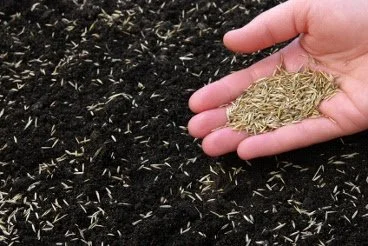Originally published on August 12, 2025.
I come from a semi-rural background. What I mean by that is while I didn't live or grow up on a farm, I had strong ties to and history with farming through both sets of grandparents. I spent many summer days and nights on these small family farms that went back to the very origins of my family in Canada. Some of the memories from that time remain vividly etched in my mind and none more so than those related to spring seeding and the fall harvest.
Without a doubt, these two times of the year were times of extraordinary effort and anxiety. In the spring, the work commenced as soon as field conditions permitted and there was always an eye towards weather forecasts and the sky. There were prayers that machinery would hold out against unexpected and unwanted repair. So too with harvest. Go hard and make hay while the sun - or moon - shines.
I find some parallels in the kind of work I do now and, indeed, the kind of work that any of us do. I suspect that at the start of any venture or the start of each business or calendar year, we begin with a sense of anxiety and guarded optimism. Whatever transpired from last year's "crops" provides no guarantee of what the next effort will bring or require. Perhaps last year's events have set a stronger or weaker foundation to start from. I believe the farming experience and metaphor of planting seeds and harvesting crops suggests some powerful lessons for how to approach other endeavours.
Planting our proverbial seeds does, just like farming, take preparation and thought. If we are to have a chance at a successful year, we must properly prepare the ground, utilize the best tools possible, stay focused, and plant the right seeds, in the right place, at the right time. In the case of my own coaching and consulting practice, this has meant networking with purpose, being active in certain activities, partnering with others who can complement and supplement my skills, and investing in my own skills and abilities on an ongoing basis.
A commitment to developing one's own business, like farming, also takes the right mix of optimism and realism. The stats on startups and new businesses typically tell a rather grim story with a far greater chance of failure than success in the first year or two. I tend to think of the reasons for such failures falling into two broad categories: 1. lack of (significant preparation), and 2. over-optimistic projections of how successful one can expect to be in the short-term. Successful farmers similarly leave nothing to chance. They put in the extra planning, equipment maintenance, and time to compensate for unanticipated and undesirable events. No one controls the weather - or the economy. I suspect, however, that just like farmers lamenting or worrying about the weather, all of us have an anxiety about business - and life - factors that are well beyond our control to influence. We can't control the weather, but we can be ready with the umbrella or rubber boots.
Successful business people, like good farmers, are also prepared to learn from the past, and from others, to reap a better harvest. This requires some rigour in understanding what did or did not work in the past and why. Failure to truly learn from past successes and failures causes us to attribute one to our skill and the other to the foibles of the gods. In either case, successful strategies or solutions have not been discerned to inform the next effort. In respect of learning from others, I can't even begin to identify all the leaders, coaches and consultants who have informed my journey over the past 40 years. Their experiences - good and bad - have helped me develop new skills, approaches, and models along the way. Just like farming, however, there has to be a sense of adapting, not blindly adopting, tools and techniques that suit your particular field of work.
I also believe there is further advantage and opportunity to be gained by failing well. That's right, failing well. Now I'll admit that this may not seem to draw quite as strong a parallel to farming as other lessons noted above. But I believe it goes back to being prepared to learn lessons. I have personally had success in trying to reengage with prospective clients when a proposal I have submitted for consideration has been rejected. I believe the nature of my response to rejection has been a key to my recovery and subsequent success. A sincere and genuine interest in trying to discover how I could have presented or engaged differently on an RFP response has directly related to multiple different opportunities. How you fail, and how you respond to failure, is just as important as how you succeed.
One final note and look back to farming as a benchmark for business success. I believe all who have grown up in rural communities would attest to an underlying spirit of support and cooperation. If somebody needed help, it was often available to them, especially in times of distress. For those of us with roots in rural and farming communities, I'm sure we have more than one story of community collaboration. It's a bit of that spirit that I hope I bring into my coaching and consulting practice and what I value in some of my most trusted associates: offer help, guidance, time, and tools when asked, without expectation of return. A spirit of pay-it-forward that plants seeds for future collaboration, support, and engagement.
So, plant seeds. Prepare well. Look for opportunities and connections. Look for synergies and like-minded "farmers" to work with. Listen, learn, adapt, and apply. Offer help and support. Fail well.
Reap the harvest.
Do it again.
———————————————————————————————————
Greg Hadubiak, MHSA, FACHE, CEC, PCC
President & Founder, BreakPoint Solutions
gregh@breakpoint.solutions
www.breakpoint.solutions
780-918-0009



